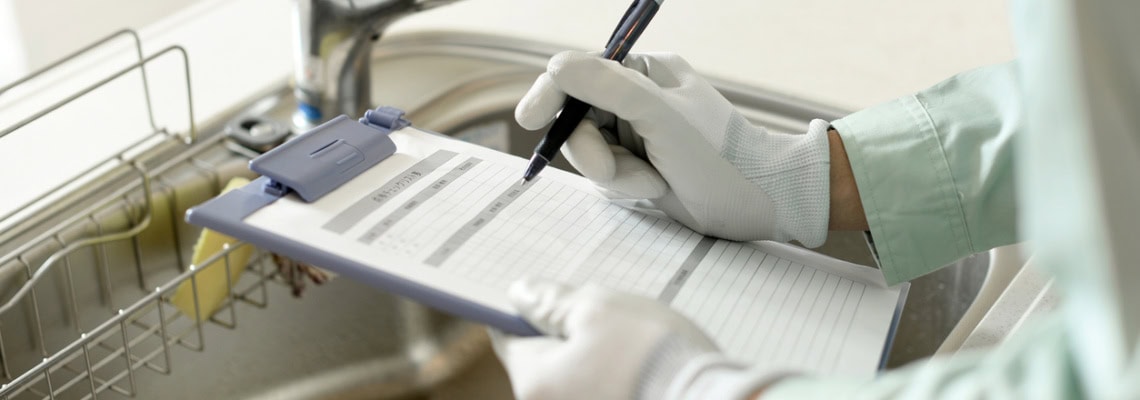Water quality is important because it can impact your health. The Environmental Protection Agency (EPA) recommends that homeowners and renters test their drinking water if it is not on a public system (well water).
Local labs conduct these tests, and if you suspect that your water may be contaminated for any reason, you can test your potable water for contaminants. If you have family or household members who are immunocompromised, contaminated water can more adversely impact them with serious health issues.
How Often Should You Test Your Water?
The EPA recommends that homeowners and residents test their drinking water sources, if not on a public water system, yearly. Why? Well water is untreated and untested. Because the water source is housed in the ground, if your well is improperly sealed and compromised, outside contaminants from the soil and runoff can creep into your well water supply.
Because well water has no quality control, residents and homeowners must remain vigilant about ensuring that the water coming out of the taps is contaminant-free. It is recommended that all homeowners test water quality after a flooding event.
Who Tests Your Drinking Water for Safety?
You are probably wondering how to go about getting your water tested. Fortunately, there are accredited, professional water testing labs across the country that you can contact to do a water quality test.
You will want to go with a state-accredited laboratory to ensure that a reputable lab with good quality control practices and knowledgeable and experienced laboratory technicians analyzes your samples. It is important that water testing be done in a controlled environment. While there are DIY water tests available, these cannot provide the accuracy that testing from a state-certified lab will. It is ill-advised to play that type of guessing game when it comes to whether your water is clean.
What Contaminants Should Test For?
The Environmental Protection Agency (EPA) has set water standard guidelines for the safety and education of the public. According to the EPA, public water sources should be tested for harmful levels of manganese, sulfate, and chloride, as well as corrosion and hardness, at least once every three years. For those on public water systems, your water provider is responsible for meeting the National Primary Drinking Water Standards, and there should be an annual breakdown or water quality report provided to you. However, if there is a chemical spill or some type of flooding event, residents will want to make sure that their tap water is unimpacted. If you feel your water has a taste or odor
Residents and homeowners who have well water should test their water more regularly, at least once a year. Depending on the plumbing and where your septic system is, there may be some concerns about contamination there. These residents will want to have professionals test for contaminants, including total coliforms (organic bacteria), fecal coliforms (E. coli), pH and nitrate levels, and industrial and fuel-related contaminants (volatile organic compounds). The CDC recommends testing yearly in springtime (after winter melt and potential run-off contamination).
Water Testing Services in Northern VA
Are you wondering where to find a state-certified, reputable water testing laboratory in Northern Virginia? Joiner Micro Labs (JML) has got you covered. Our expert lab technicians have been delivering water quality reports to Northern Virginians since 1991. Visit our website to learn more about who we are and what we do or to schedule a water quality assessment today.

